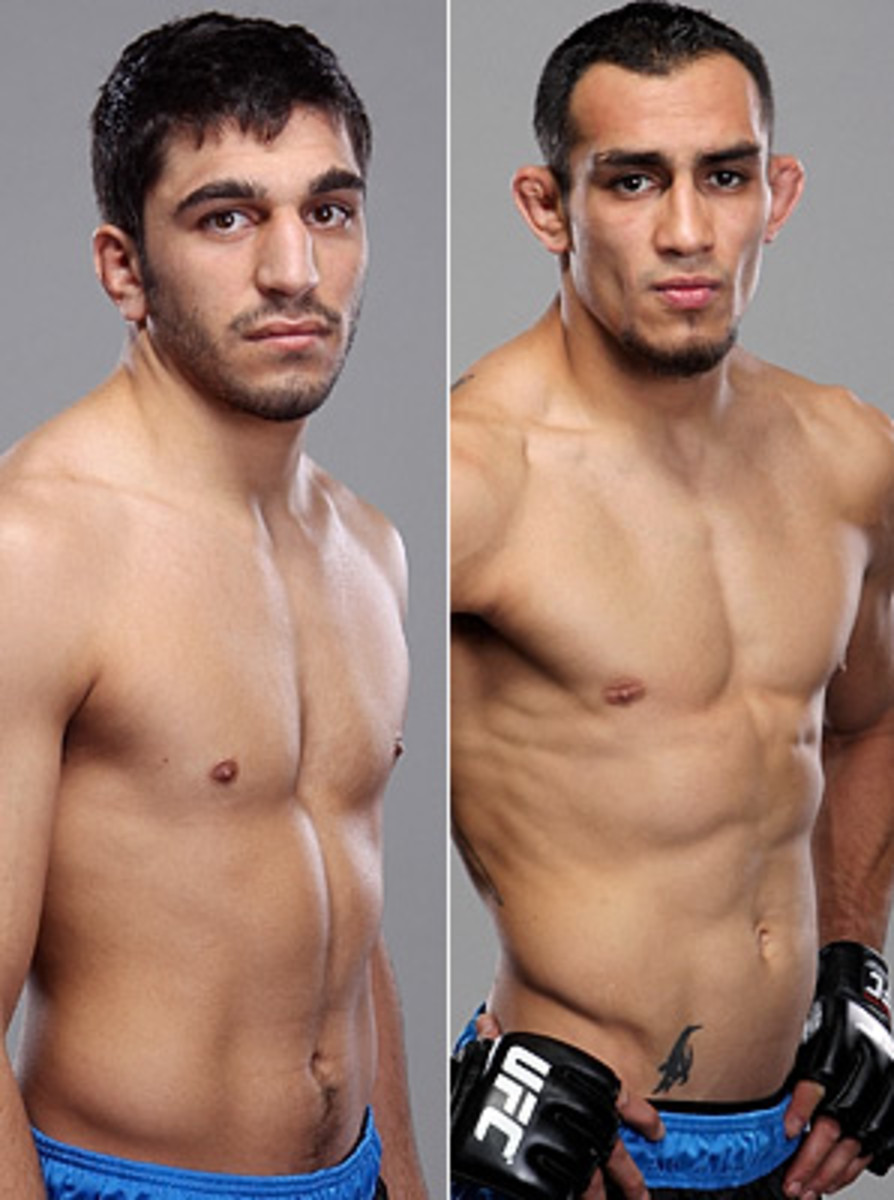For The Ultimate Fighter finalists, the struggle is only beginning
In some ways, going from The Ultimate Fighter to the UFC is a little like finally finding a job after months and months of unemployment. At first, you're overcome with joy. Mission accomplished, and all that.
Then after a week or two you realize that the hours are long, the paycheck isn't so great after taxes, and a part of you misses having your days to yourself to think deep, self-pitying thoughts. Still, a job's a job, and it's better than the alternative.
Take Saturday's TUF 13 finale, for example. The winner of the fight between finalists Ramsey Nijem and Tony Ferguson will hoist the cut-glass trophy, give a quick speech about this being the best night of his life, and then the clock strikes 12 and the limo turns back into a pumpkin.
Sure, he's in the UFC. He's got a name he can build on. But he also gets locked into a contract that -- should his career actually blow up the way it's theoretically supposed to after what we're led to believe is a monumental achievement -- will keep him underpaid and overworked in the couple of years following his TUF stint.
Does that make it a bad deal for the fighters? Yes and no. The TUF farm system plucks them out of the minor leagues and gives them a reality TV platform that somehow still gets pretty decent ratings for a show that's essentially been rinsing and repeating for 13 seasons. If these guys thought they were on the verge of getting into the UFC on their own merits, they probably wouldn't have auditioned in the first place.
Nijem, for example, who is a slight favorite to win the finale, got on the show after going 4-1 against unremarkable competition over the span of two and a half years. Ferguson went 10-2 over the same time period, and even faced one or two recognizable names during that run.
Again, the relative inexperience and/or obscurity of the competitors is sort of the point of TUF. It's like Star Search, only instead of a precocious child matching her singing skills against a ventriloquist's ability to make a puppet play a banjo, they just save everyone some time and beat each other up.
There's a wonderful simplicity to that. A purity, even. It's probably the most fair reality show on TV, since nobody gets voted off or shoved aside because of some text message popularity contest. If you're talented, you move on.
At the same time, because the show brings together a collection of fighters who are, by definition, either not quite ready or not quite good enough to be in the UFC, what does it mean to beat them all? Some TUF finalists go on to have great careers. Others settle somewhere in the middle of the pack. A few are unceremoniously dropped altogether.
Because TUF typically gets fighters at an early, rough stage in their development, it's a little like dropping a talented high school baseball player into the majors and seeing if he can step up his game fast enough to stick around. Some can. Many can't. It's a complex alchemy that makes up a successful pro fighter, and raw ability is only one of the ingredients.
And make no mistake, both Nijem and Ferguson have some raw ability. They've both displayed flashes of real potential during their time on the show, even if they mostly did it against not-quite-ready-for-primetime opponents.
But when you watch them fight it out for the top spot on Spike TV, remember to take all the talk about what it means to be a TUF winner with a grain of salt. The truth is, it's a launching point. It's more opportunity than achievement. It's the difference between acing the job interview and acing the actual job.
It's nice to be a winner, no matter what you think of the field of competitors. And that cut-glass trophy? I'm sure it looks nice on the mantel. If anyone still has a mantel, that is. But don't get too caught up in the pageantry. For this weekend's TUF finalists, the struggle is just beginning.






